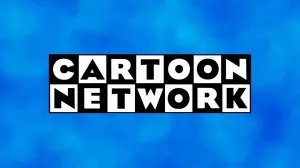While Barry Allen has secured his legacy as The Flash on television, it is his protege and nephew Wally West who has received the most acclaim in the world of comics. After Barry was killed in Crisis On Infinite Earths in 1985, Wally took up his costume (with some slight modifications) and filled his boots in Central City. It was a major shift, unique in its day, and one that would last longer than Barry’s entire initial life as The Flash. That kind of change doesn’t happen overnight or by accident though. There was one writer who defined Wally West not only as a Flash, but as THE Flash for many comics readers: Mark Waid.
Videos by ComicBook.com
Mark Waid began his work on The Flash with a 50th Anniversary one-shot in 1990 before taking over the ongoing series with The Flash Annual #4 in 1991. Accompanied by artist Greg LaRoque and a variety of others, he quickly established himself as a special voice in the superhero genre and The Flash as a must-read character. Now for the first time in years, DC Comics is offering a new collection of Waid’s epic run on The Flash. This week they released the first volume of a planned series of omnibuses that will give readers the chance to experience it all from the very start.
If you still have any doubts as to why you should check out Mark Waid’s The Flash, read on to find out why we love this series.
The Rise of a Hero
The main reason it took more than four years for Wally to really be defined in Waid’s run is the looming shadow of his deceased mentor. Many of the early issues on the series are about Wally trying to find his way and struggling as the “new” Flash. That doesn’t disappear when Waid takes the reins, but it becomes part of an evolving narrative with an end in sight. Waid understood both the need to deal with Barry’s death and the power of a teacher-student narrative.
That’s probably the reason he began his run with a “Year One” story, riffing on the title of Frank Miller and David Mazzuchelli’s acclaimed Batman story. It was both a reset for the series and an opportunity to form his thesis. Over the next decade Waid would take Wally through his paces as he learned the job and became more and more successful. Eventually, Wally would not only meet the standards set by his predecessor, but exceed them. By the time Waid left The Flash, Barry felt more significant as a motivating part of Wally’s personality than a distinct character. He was more Uncle Ben than superhero, really.
It’s that sort of character-driven storytelling that affects real change and growth that made The Flash such a hit. Fans could return each month to see their favorite hero and watch his life and goals change along with their own. Wally isn’t just a different man at the end of this run, but after every year. Unlike someone like Spider-Man, Wally isn’t eternally bound by guilt and the tropes of a bumbling teenage superhero. He really is able to become the hero he aspires to be at the start of these collections.

The Rise of a Writer
As stunning as the evolution of Wally West into his role as The Flash is to witness, it’s every bit as impressive to watch Waid become the writer we know and love today. Waid had been writing comics for less than a decade when his debut on The Flash was published and it’s clear in the earliest issues that he is still hitting his stride (pun intended). That’s not to say the work is rough or subpar, but it’s not the same man who regularly sets and then jumps over the bar for superhero comics that we know today.
The longer Waid spends on the series, the more you can see him create and develop a set of tools that not only make The Flash great, but will also influence fan favorite runs on Fantastic Four, Daredevil, and many others. His construction of a strong supporting cast and the ways in which they are just important to the stories as villains and action sequences is key. Waid makes you care as much about someone like Hartley Rathaway (a.k.a. Pied Piper) outside of his suit as he does in it. His plotting of The Flash is just as great. He grasps the importance of rotating sub-plots, discernible arcs, and a healthy rotation of problems in a way that is shockingly modern. It’s easy to read Waid’s work here and see that he was setting a model that is still followed by many superhero writers today.
And none of this is to dismiss the important inputs of his collaborators. Even the earliest issues of this run of The Flash have aged remarkably well. The storytelling in each issue is crystal clear and LaRocque in particular really shows off how to draw a speedster story. Waid is the connective tissue of this series though and it’s his evolution and strengths that are easiest to perceive when reading it in a collection.

The Greatest Flash Story Ever Told
You’ve probably sensed a theme to the reasons we love this extensive run of comics. It’s all about growth and improvement. You can see it in the way that Wally works so hard to to become one of the greatest superheroes of the DC Universe. You can see it in the way Waid continually hones his craft to become one of the best creators in the superhero genre. All of this is encapsulated in a single story that is indisputably the greatest Flash story ever told: “The Return of Barry Allen”.
The title might suggest that it runs counter to everything about Wally removing himself from Barry’s shadow, but it’s quite the contrary. It’s a story about understanding legacy, embracing it, and then moving on before its dangers consume you. The entire Flash family is involved in some way or another, from Jay Garrick to Bart Allen (Wally’s very own Kid Flash). It’s worthwhile to build up to the story with everything that comes before it, but if you can only read one Flash story, it has to be this one.
It used to be that “The Return of Barry Allen” was the only portion of Waid’s run you could reliably find. But now with the debut of this first omnibus a whole new generation of Flash fanatics can discover the complete thing for themselves. Even with the major changes from the television show (since Barry probably won’t die there anytime soon), we suspect this could still be a lot of readers favorite incarnation of The Flash. It’s truly something special and worth discovering, even 25 years after it began.
Have you read any of Mark Waid’s run on The Flash before? Do you agree or disagree with our assessment here? Let us know in the comments below.








